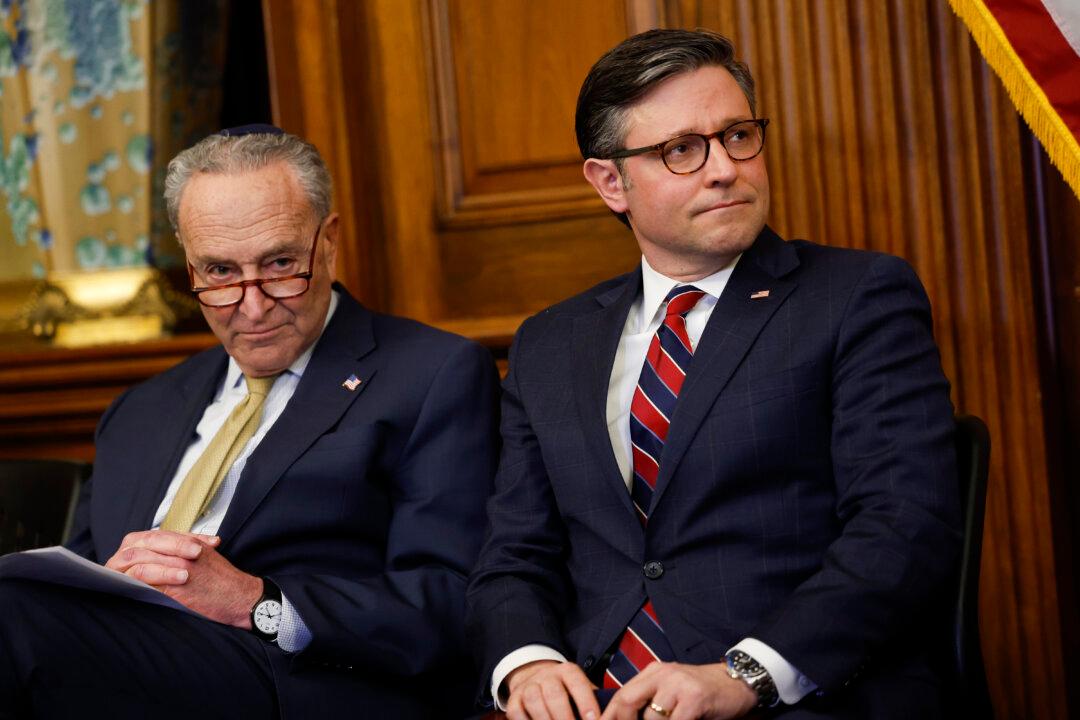U.S. congressional leaders on March 3 unveiled a bill that would fund parts of the government for parts of the fiscal year as lawmakers faced a threat of a partial government shutdown later this week.
Both House Speaker Mike Johnson (R-La.) and Senate Majority Leader Chuck Schumer (D-N.Y.) appeared to claim victory for their respective parties, releasing statements to say they were able to come to an agreement to fund the government.





